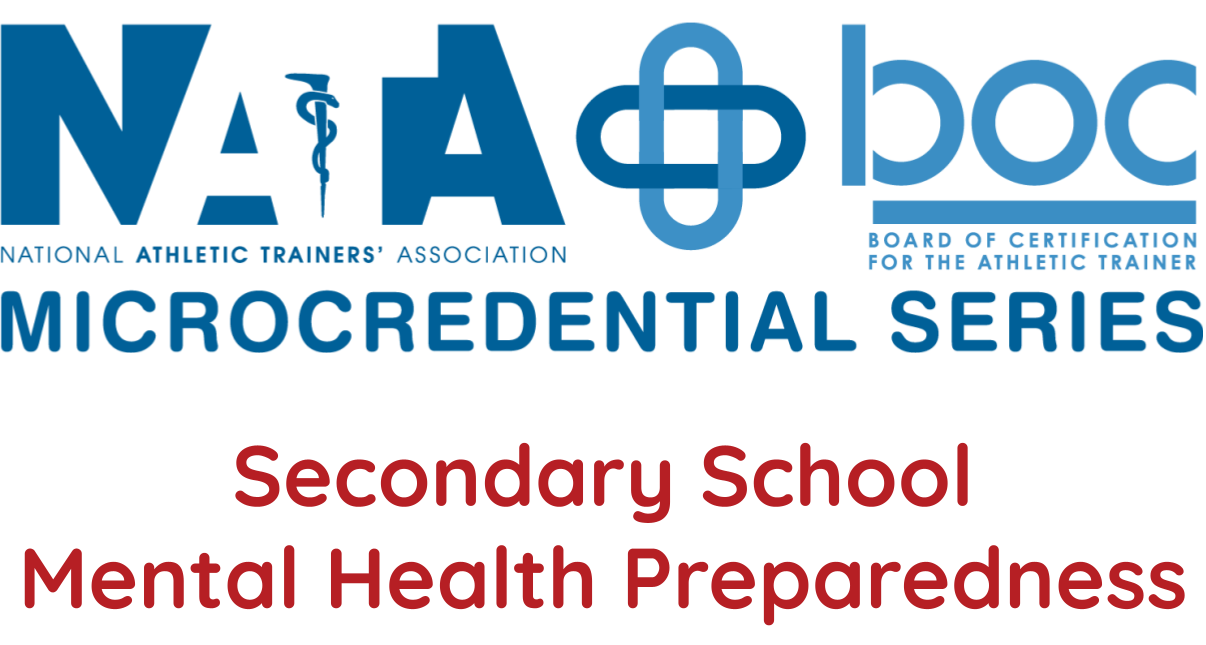
Are Esports Really Sports? The Role of Athletic Trainers in Esports Programs
This session is featured as part of the COPA Con 2024 Highlight Reel, showcasing the most impactful presentations from the 2024 NATA Council on Practice Advancement’s Virtual Conference.
Abstract:
Esports, or competitive gaming, is growing exponentially, with millions of viewers, billions of dollars of investment and a player base garnering fans around the globe. Many secondary school and collegiate programs are instituting esports teams in both varsity and intramural settings and athletic trainers are the most qualified health care professionals to address the needs of this population. There is a need for skilled professionals to manage esports-related musculoskeletal injuries across all levels of play as well as to promote optimal physical function for performance. This session will explore the physical demands of esports, its unique culture and community, the impact of peripherals and ergonomics and the role of athletic trainers. The session will also discuss how skills for treating this population are relevant in other high performance sedentary occupations such as tech workers, music producers and digital artists.
Learning Objectives:
- Articulate the current state of health and performance in esports.
- Connect the role of athletic training professionals to esports.
- Categorize the relationship between posture, ergonomics and injury risk in esports.
- Appraise current opportunities and barriers for athletic trainers in the field of esports medicine.
- Justify implementing health and performance initiatives at the institutional level.
How is this session relevant to a variety of settings?
Esports has evolved from a niche subculture into a mainstream phenomenon with millions of players and billions of viewers. Tournaments and leagues attract massive audiences, both online and in person, contributing to a booming industry at professional, collegiate, high school and community levels. As the esports market continues to surge, esports medicine has become integral to the ecosystem. The demand for specialized health care support has surged in tandem with the industry's growth, especially as varsity collegiate programs emerge.
Esports athletes, or competitive gamers, face distinctive health challenges associated with their intensive practice schedules. As the industry expands, so does the need for tailored health care solutions that address the physical and mental well-being of players.
"Esports medicine" has become the catch-all term to address these unique challenges. This specialized branch of sports medicine acknowledges the specialized demands of competitive gaming and aims to optimize performance, prevent injuries and enhance the overall health of esports athletes in the same way that sports medicine does traditional athletes.
To keep pace with the rapid growth of esports, the field of esports medicine adopts a multidisciplinary approach. It combines elements from athletic training, sports medicine, physical therapy, psychology and nutrition to provide comprehensive care. This approach not only contributes to the well-being of players, but also aligns with an evidence-based care model in which health care professionals are integrated rather than siloed. The remarkable market size and exponential growth of esports have propelled the emergence of esports medicine. As the industry continues to thrive, the demand for specialized health care services tailored to the unique challenges of competitive gaming is set to grow, further solidifying the relevance of esports medicine within the global esports landscape.
Level:
Essential
Domain(s):
Domain 1: Risk Reduction Wellness and Health Literacy
Domain 2: Assessment Evaluation and Diagnosis
Domain 3: Critical Incident Management
Domain 4: Therapeutic Intervention
Domain 5: Health Care Administration and Professional Responsibility
CEUs:
1.0 Category A
Expiration:
In order to earn your CEUs for the COPA Con Highlight Reel sessions, you must watch the video in its entirety and complete the assessment by December 31, 2025 at 11:59 p.m. CDT.
Elliot Smithson, PT, DPT, ATC, EMT
Dr. Elliot Smithson PT, DPT, MS, ATC, EMT has been working in sports and entertainment medicine since 2013 (Walt Disney World) and Division 1 level (UCF, Marshall University), and transitioned into esports medicine in 2019. He has worked with professional esports teams such as 100 Thieves, NRG Esports, and Immortals. He is passionate about advancing the line of knowledge in the esports industry and cultivating the next generation of professionals.
Caitlin McGee, PT, DPT, MS
Dr. Caitlin McGee, PT, DPT, MS received her undergraduate degree in Neuroscience and Exercise and Sport Science from Ursinus College and her Doctorate of Physical Therapy from the University of Delaware. She has been working in esports and orthopedic medicine since 2015. She is the co-founder of 1HP, a company that provides health and performance services to players, professional teams, and scholastic esports programs. She also co-founded the Esports Health and Performance Institute, a continuing education platform for medical and performance science professionals interested in esports. She is an editor of the Handbook of Esports Medicine, the first clinical textbook for the field of esports health and performance; serves on the editorial board of the Journal of Electronic Gaming and Esports; and has published research on the topic of tendinopathies in esports.

